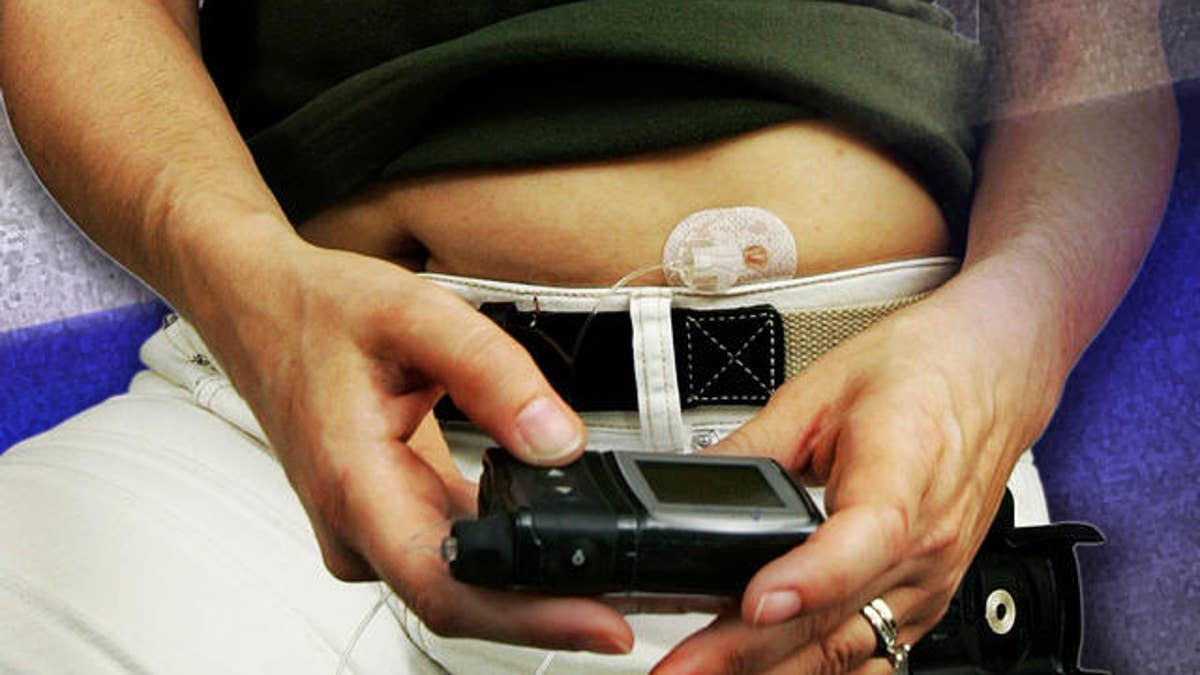
Diabetes sufferer Lee Ann Thill, 34, looks at her insulin pump after using her glucose meter to check her blood sugar at her home in Magnolia, N.J. (AP2007)
The secret to effectively manage diabetes among Hispanics may not lie in the doctor’s office.
A study is looking into whether community health workers (promotores de salud) can be more effective in helping Latinos diagnosed with type 2 diabetes to incorporate nutritional management and physical activity into their lifestyles, and use their medications safely. The study is expected be completed at the end of the year in San Antonio, Texas.
Health benefits company Humana and activist group National Council of La Raza are behind the research.
“There is evidence that community health workers can effectively engage, educate, and activate individuals with chronic diseases in ways that the formal health system cannot,” explained Dr. George Smith, president of Humana Senior Products in Texas.
Promotores de salud are health educators from the communities they serve. They will most likely be found in community-based organizations and clinics but they can also exist wherever the community nexus lies, such as beauty salons, churches and schools. This health care model shifts the focus from treatment to prevention by teaching people how to care for themselves.
Minorities are more likely to be diagnosed with diabetes than the whites. Among Hispanics, Puerto Ricans and Mexican Americans have the highest rates for type 2 diabetes.
“Latinos are particularly impacted by diabetes because of the lack of access to health care to prevent or manage the condition,” said Dr. Maria E. Rosa vice president of La Raza’s Institute for Hispanic Health.
Besides the formidable economic and linguistic barriers, other factors have to be overcome to adequately treat this population. According to a 2001 study released by the U.S. Department of Health and Human Services, Latinos are not likely to put their own medical needs over their family members. They also have a distrust of insulin therapy and a preference for traditional remedies.
Controlling the disease will have significant benefits. Not only is diabetes the seventh leading cause of death in the United States, it is also the leading cause of kidney failure, nontraumatic lower-limb amputations and new causes of blindness among adults in the United States.
The cost of health care associated with the disease is significant. The average medical expenses among people with diagnosed diabetes were almost two-and-a-half times higher than those who do not have diabetes, according to the American Diabetes Association.
Soni Sangha is a freelancer based in New York City.
Follow us on twitter.com/foxnewslatino
Like us at facebook.com/foxnewslatino
